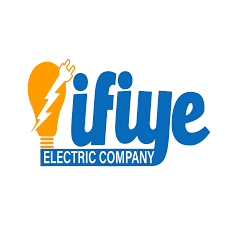
With a combination of astute electrical problem-solving skills, a passion for customer service, and a can-do attitude, Ifiye Electric quickly found a way to deliver successful electrical outcomes for residential and domestic customers throughout Bunbury, an innovative approach with a strong off-grid solar component will be key to achieving universal energy access for Somalia. With no centralized electricity grid coupled with a significant nomadic population, more than 70% of Somalis live without any electricity connection. The roughly 30% of the population with limited electricity are served by privately owned diesel-powered mini-grids, for which they pay among the highest rates in the world. Off-grid solar is well placed to address the unique challenges presented by this lack of infrastructure, a largely mobile population, and high-costs of incumbent services.
Ifiye Electric Current Energy Landscape
Despite Somalia’s history of protracted conflict, its private sector has shown entrepreneurship and resilience, and succeeded in maintaining economic activity in a challenging environment. In the absence of an electric grid, privately owned and operated diesel-powered mini-grids were developed, which provide nearly all of Somalia’s electricity. However, these are concentrated in urban areas, where 57.2% of the population has electricity access, versus 11.6% in the rural areas where most of the population lives.
In rural areas, charcoal and firewood make up about 85%-90% of energy used. These biofuels provide unhealthy and low-quality lighting, without any additional energy services. Consumption at this magnitude also contributes to deforestation and Co2 emissions.
Several barriers financial, logistical and environmental – stand in the way of reaching universal electricity access through diesel powered mini-grids alone. Inability to pay for the electricity provided by these mini-grids is a significant factor. Whereas nearly 70% of the population lives below the poverty line, the cost of electricity in Somalia is amongst the highest in the world, at $0.5 – 1 per kWh.
Off-grid solar can help to address this affordability issue and respond to the need for decentralized electrification with 65% of the population being nomadic, and about 2 million internally displaced people.
Challenges in the Current Off-Grid Solar Market in Somalia
Consumer awareness and acceptance of off-grid solar in Somalia is generally high, and the price is lower than the alternatives. An estimated 100,000–150,000 off-grid solar products are sold annually, according to World Bank research.
Unfortunately, awareness of the importance of purchasing quality products and how to identify them, generally lags consumer awareness about off-grid solar more generally. Most of the currently available products are poor-quality and thus carry the twin risks of undermining consumer confidence in this technology, and of placing financial strain on consumers who invest scarce funds in products that fail to perform as promised.
In Somalia, non-governmental and aid organizations procure and distribute lanterns and solar home systems in relatively large numbers for free, or substantially reduced costs. While this approach meets immediate needs, it hinders sustainable market development as the population becomes more reluctant to pay for something, they believe they will eventually receive for free. Where poor-quality products are distributed, consumer confidence in off-grid solar solutions is also significantly undermined. Lighting Global has released a aid to help organizations mitigate these risks.
In addition to these challenges, existing solar businesses are constrained in accessing finance from local commercial banks, which still consider the off-grid solar sector to be relatively unknown and risky. Further, foreign-based distributors and manufacturers perceive high risk to doing business in Somalia and rarely offer credit to local suppliers. This leaves businesses to largely self-finance and limits their ability to grow and scale.
However, We empower our people to Intervene when they witness any ‘at-risk behavior, Led by example Identify and manage hazards associated with the activities for which they are responsible, Courageously and honestly report all accidents and hazards and Take the time to do things right; do the job safely or not at all – do not cut corners.

